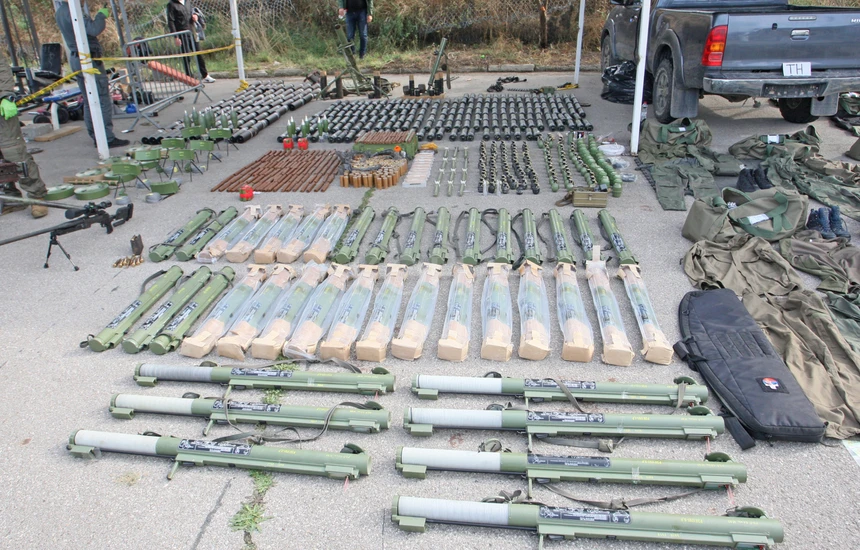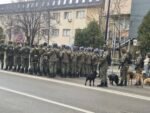A portion of the indictment raised by the Special Prosecution of Kosovo against 45 individuals for the attack in Banjska also discusses the manner in which the group that carried out the attack was financed.
According to the indictment, Serbia is considered the principal party responsible for financing the group led by Radoičić.
“During the investigation, it was confirmed that the empowerment of the accused Milan was done in various forms with the direct support of the Republic of Serbia. Initially, Serbia offered economic empowerment through the provision of tenders in Serbia, aimed at collecting substantial funds—specifically, support in the millions of euros. Later, Serbia offered political support through high-level meetings with security and political structures of the Serbian state,” reads the indictment.
The indictment further states that Serbia also provided Radoičić with the necessary military infrastructure for training the participants.
“Subsequently, Serbia provided all the necessary military infrastructure for the training of participants, supplying military and logistical equipment—all essential for carrying out the terrorist attack on September 24, 2023, in Banjska, Zvečan, Republic of Kosovo. The scheme for economic empowerment through fund collection to finance terrorism in Kosovo for the accused Milan Radoičić was conducted through the legal establishment of businesses aimed at concealing the origin of funds, or masking the source of money, so that in the eyes of the public and official authorities, everything would appear legal. The accused Milan Radoičić was directly involved as an owner of businesses and indirectly as well,” reads the indictment from the Prosecutor’s Office.
“In addition to the empowerment and political support aimed at influencing the civilian Serbian population, the accused Milan Radoičić was also offered support by placing him in key positions to create a prominent figure in the north, and through these positions, control the citizens of this part of Kosovo. The positions held by the accused Milan Radoičić were vice president of the ‘Serb List’ party, president of the so-called ‘Kosovo and Metohija Football Federation’ in Serbia’s parallel system, and president of the so-called ‘Trepça Club’ in Serbia’s parallel system,” the indictment continues.
Moreover, it states that based on the evidence collected during the investigation—such as weapons, vehicles, drones, uniforms, and a series of reports, documents, and responses from various institutions—”facts have been proven that accurately describe the empowerment, the method of collecting financial resources with the aim of financing terrorism, and even money laundering through the conversion of wealth obtained from criminal activity into both movable and immovable assets, by the accused Milan Radoičić.”
The indictment further states that the accused Milan Radoičić, in the name of committing various acts of violence, financial influence over his group, and directing others in committing violent acts, collected financial resources. These resources were used to pay the group’s participants, purchase logistical equipment, including heavy weapons, armored vehicles, drones, military uniforms for the terrorist group, and any other military equipment necessary to carry out terrorist activities.
The indictment emphasizes that the overall operational scheme of the accused Milan and the support he received created significant power in controlling the northern region through criminal activities. This influence is noted to have been used as an instrument to challenge the constitutional legal order of Kosovo through terrorist acts and for his personal gain.
According to a scheme presented in the indictment, Radoičić’s criminal activities were financed from two main sources: “by misusing Kosovo’s tenders and from the state of Serbia.”
“The first form of financing, by misusing Kosovo’s tenders which were of lower value, occurred by obtaining contracts that, procedurally, were legal. However, after securing the contract, the project was not implemented or not carried out at all. Meanwhile, the second and primary form, in terms of the staggering amount of money, was through financing from Serbia, where this form functioned under the so-called ‘Office for Kosovo and Metohija’,” the indictment concludes.







